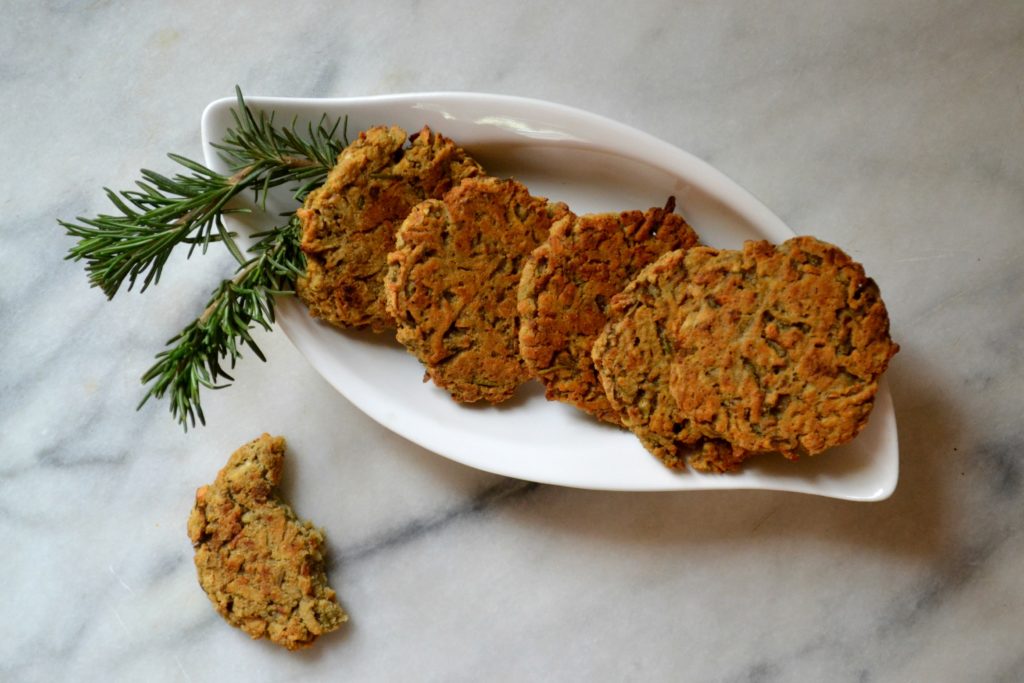Jerusalem Artichoke is a hardy vegetable that is a relative of the sunflower, and while its history of domestication is less known than that of the latter, it still dates back thousands of years. In other parts of the world, Jerusalem artichokes are eaten as a vegetable and as a root vegetable – a type of tuber – but in North America, they are used almost exclusively as a herbal remedy.
Jerusalem artichokes are a type of sunflower that grow in many parts of the world. Despite their name, they are unrelated to the artichoke (Cynara cardunculus), and are a member of the sunflower family (Asteraceae). The edible parts of Jerusalem artichokes include the whole plant, the edible leaves and the edible root. The whole Jerusalem artichoke plant can reach up to 20 centimetres (7.9 in) in height, and 5 centimetres (2.0 in) in diameter. It has large, gray-green leaves and a large edible root. The edible root is up to 6 centimetres (2.4 in) long, and it is white, gray
Jerusalem artichoke is a perennial vegetable in the sunflower family and is the only member of the sunflower family that can be eaten raw. The Jerusalem artichoke has a long history of use in many cultures, primarily for its edible tubers. The tubers are harvested when they are 8-10 in long, and are usually harvested in the late summer or early autumn. The tubers are then boiled or baked into a batter, and then fried. Jerusalem artichoke dish may be eaten as a side dish or a main dish, and the boiled tubers may be served with a meal.
A Quick Look
A kind of knobby root vegetable, the Jerusalem artichoke is also known as sunchoke or earth apple. Jerusalem artichokes have a beige color and bulbous protuberances that resemble a cross between fresh ginger root and a potato. They have a deep, nutty taste with a pleasant sweetness. This sweetness is mainly due to the amount of inulin, a soluble fiber found in the Jerusalem artichoke. Jerusalem artichokes are a rich source of potassium and a good supply of iron, in addition to being high in this blood sugar regulating, gut-health boosting fiber.
Overview
The knobby, delicious root known as Jerusalem artichoke may be found underneath the towering Helianthus tuberosus flower’s spreading yellow petals.
Jerusalem artichokes are neither from Jerusalem nor connected to artichokes, thus the name is a little misleading. Jerusalem artichokes, also known as sunchokes or earth apples, are a member of the Asteraceae family, which also contains sunflowers and daisies, and are native to North America. According to legend, the term “Jerusalem artichoke” was derived from the Italian word girasole, which means “sunflower.” Girasole was transformed into “Jerusalem” via numerous outdated versions of the telephone game.
Jerusalem artichokes, like many other species of the Asteraceae family, are garden bullies. They grow prolifically and weedily if left unmanaged, drowning out more genteel plant species. In fact, many growers consider Jerusalem artichokes to be a nuisance.
As a result, assist a farmer while also eradicating a sunchoke (by eating it).
Identification
The Jerusalem artichoke is a knobby rhizome that resembles a grenade, a tiny russet potato, and a ginger root. It has rough beige skin and an unusual form, with irregular bulbous protuberances on its potato-like body. The flesh is cream-colored and crunchy when raw, similar to radish.
Cooked Jerusalem artichokes are the most common way to eat them. They have a silky texture and a sweet, somewhat nutty taste with a touch of earthiness in this form, similar to a sweeter, smoother potato.
Nutritional Information
A cup of sliced, raw Jerusalem artichokes (approximately 150g) has 117 calories, 3.0 grams of protein, 26.2 grams of carbs, 2.4 grams of fiber, 14.4 grams of sugar, and no fat. Jerusalem artichokes are a rich source of iron and a good source of potassium.
Inulin, a kind of fiber found in abundance in Jerusalem artichokes, is also nutritionally significant. Inulin is a soluble fiber that helps to regulate blood sugar levels while also acting as a prebiotic. Prebiotics are substances that feed the beneficial bacteria (probiotics) in our intestines, thus improving digestive and immunological health.
Selection
Due to their low consumer appeal, Jerusalem artichokes are not always easy to come by. However, they may be available seasonally in health food shops, farmers markets, and specialized grocery stores (from fall to spring).
The finest Jerusalem artichokes will feel firm and have no soft or dark areas, as well as no excessive cuts or knicks on the skin. Despite the fact that there is no link between shape and quality, those with a more consistent, less knobby shape will be somewhat simpler to clean and prepare.
Storage
Refrigerate in a cold, dry location, such as the crisper drawer. Keep your Jerusalem artichokes in a paper bag to keep them fresher longer and absorb excess moisture. They will last one to three weeks in this manner, depending on how fresh they were when bought.
Preparation
Preparing Jerusalem artichokes requires some work, but it is well worth it.
The first and most important task is to clean them. There may be numerous gaps and crevices for dirt to hide in depending on the form of your Jerusalem artichokes. This may be done using a vegetable brush. To eliminate any dirt, wash the Jerusalem artichokes in warm water and brush them.
The Jerusalem artichoke’s skin is edible and does not need to be peeled. However, you may want to go in and cut off any really tough parts with a paring knife.
You may either cut them into smaller pieces or steam/roast them whole once they’ve been cleaned and prepped.
The sweet and nutty tastes of the Jerusalem artichoke are best brought out by roasting, so here’s how to do it:
Preheat the oven to 400 degrees Fahrenheit (200 degrees Celsius). Cut the Jerusalem artichokes into 1-inch pieces and season with salt and olive oil. Place them on a parchment paper-lined baking sheet and bake for 20-25 minutes, rotating halfway through for uniform browning. They should be soft and caramelized around the edges when they’re done. They may be eaten raw or blended with a little garlic and nutmeg to create a delicious mash.
PATTIES WITH ROSEMARY-FLECKED SUNCHOKE CRISPY ROSEMARY-FLECKED SUNCHOKE CRISPY ROSEMARY-FLECKED SUNCHOKE

The rosemary adds a fragrant note to these crispy roasted patties, which are nutty and somewhat sweet. They’re excellent as a hearty carrier for dips or tapenades, or as an alternative to conventional burgers.
Ingredients
1 tbps olive oil, plus extra for drizzling Jerusalem artichoke, grated 2 cups garlic, coarsely chopped 2 cloves rosemary needles, fresh, minced chickpea flour, 2 tbsp a half cup of salt 1/2 teaspoon
Directions
15-minute prep time Time to prepare: 45 minutes There are 6 servings in this recipe.
Preheat the oven to 350 degrees Fahrenheit (180 degrees Celsius).
Combine grated Jerusalem artichoke, garlic, rosemary, and olive oil in a large mixing basin. To mix, stir everything together.
Combine chickpea flour and salt in a separate small bowl.
Stir the flour mixture into the Jerusalem artichoke mixture until a pasty dough forms.
Form six little patties with the batter using clean hands. Place them on a baking sheet lined with parchment paper. Drizzle a little olive oil over the patties.
Bake for 25 minutes with the tray in the oven. Remove from the oven, turn, sprinkle with extra olive oil, and bake for an additional 15-20 minutes.
When the patties are crisp and brown on the exterior, they are done. Allow to cool before eating.
Book of Free Recipes
Every month, the Encyclopedia of Food grows as we include new delicacies and stunning food photography. Simply click this link to keep up with the latest news. Following that, we’ll give you a complimentary copy of our recipe book. We’ll also notify you when we introduce new and tasty items to the site.
For a free copy of the Encyclopedia of Food recipe book, go here.
Foods That Are Related
Jerusalem artichokes have long been thought to be a powerful weight loss tool. The vegetable, found in many parts of the world, is a type of sunflower that’s grown for its edible tubers, also called “chokes.” The tubers are said to help people lose weight, reduce cholesterol, and even eliminate the risk of heart disease. “Jerusalem artichokes are an excellent source of vitamin C and fiber and contain a small amount of riboflavin, calcium, phosphorus and iron,” said the American Cancer Society.. Read more about what do jerusalem artichokes taste like and let us know what you think.
Frequently Asked Questions
Do you have to peel Jerusalem artichokes?
I am not sure what you mean by this.
Do Jerusalem artichokes make you fart?
No, Jerusalem artichokes do not make you fart.
How do you eat Jerusalem artichokes?
Jerusalem artichokes are a type of vegetable. You can eat them raw, boiled, or roasted.
Related Tags
This article broadly covered the following related topics:
- jerusalem artichoke benefits and side effects
- jerusalem artichoke weight loss
- jerusalem artichoke health benefits
- jerusalem artichoke taste
- jerusalem artichoke nutrition vs potato
